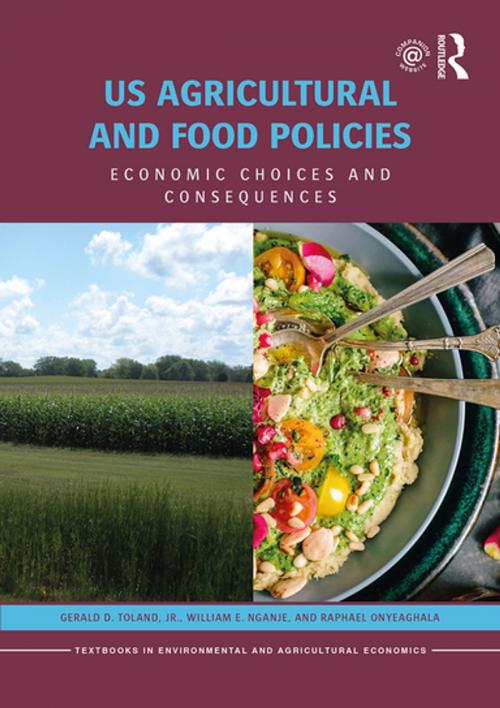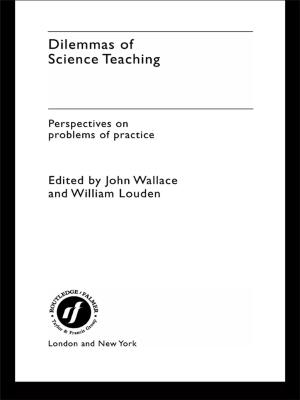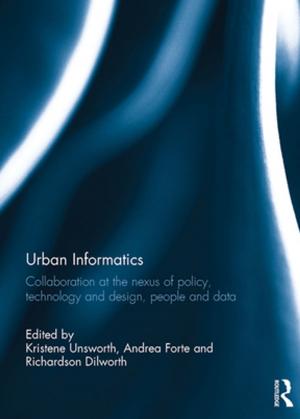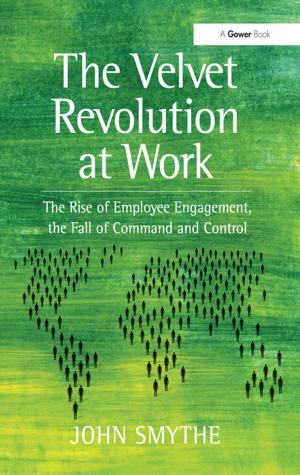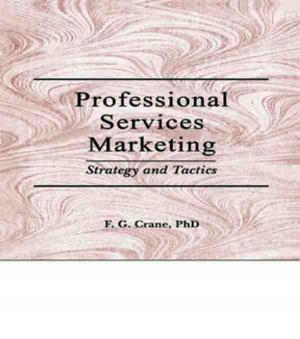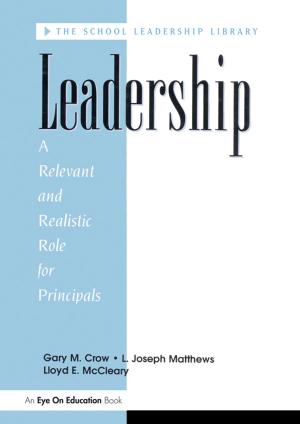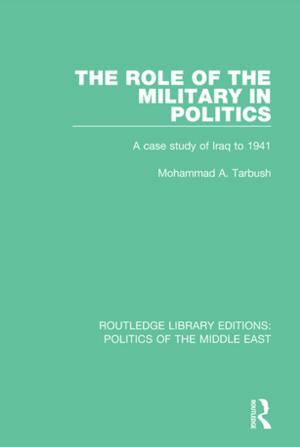US Agricultural and Food Policies
Economic Choices and Consequences
Business & Finance, Industries & Professions, Industries, Economics| Author: | Gerald D. Toland, Jr., William E. Nganje, Raphael Onyeaghala | ISBN: | 9781315459516 |
| Publisher: | Taylor and Francis | Publication: | September 18, 2017 |
| Imprint: | Routledge | Language: | English |
| Author: | Gerald D. Toland, Jr., William E. Nganje, Raphael Onyeaghala |
| ISBN: | 9781315459516 |
| Publisher: | Taylor and Francis |
| Publication: | September 18, 2017 |
| Imprint: | Routledge |
| Language: | English |
Policy analysis is a dynamic process of discovery rather than a passive exercise of memorizing facts and conclusions. This text provides opportunities to "practice the craft" of policy analysis by engaging the reader in realistic case studies and problem-solving scenarios that require the selection and use of applicable investigative techniques.
US Agricultural and Food Policies will assist undergraduate students to learn how policy choices impact the overall performance of agricultural and food markets. It encourages students to systematically investigate scenarios with appropriate positive and normative tools. The book emphasizes the importance of employing critical thinking skills to address the complexities associated with the design and implementation of twenty-first-century agricultural and food policies. Students are asked to suspend their personal opinions and emotions, and instead apply research methods that require the careful consideration of both facts and values. The opportunities to build these investigative skills are abundant when we consider the diversity of modern agricultural and food policy concerns.
Featuring case studies and critical thinking exercises throughout and supported by a Companion Website with slides, a test bank, glossary, and web/video links, this is the ideal textbook for any agricultural policy class.
Policy analysis is a dynamic process of discovery rather than a passive exercise of memorizing facts and conclusions. This text provides opportunities to "practice the craft" of policy analysis by engaging the reader in realistic case studies and problem-solving scenarios that require the selection and use of applicable investigative techniques.
US Agricultural and Food Policies will assist undergraduate students to learn how policy choices impact the overall performance of agricultural and food markets. It encourages students to systematically investigate scenarios with appropriate positive and normative tools. The book emphasizes the importance of employing critical thinking skills to address the complexities associated with the design and implementation of twenty-first-century agricultural and food policies. Students are asked to suspend their personal opinions and emotions, and instead apply research methods that require the careful consideration of both facts and values. The opportunities to build these investigative skills are abundant when we consider the diversity of modern agricultural and food policy concerns.
Featuring case studies and critical thinking exercises throughout and supported by a Companion Website with slides, a test bank, glossary, and web/video links, this is the ideal textbook for any agricultural policy class.
